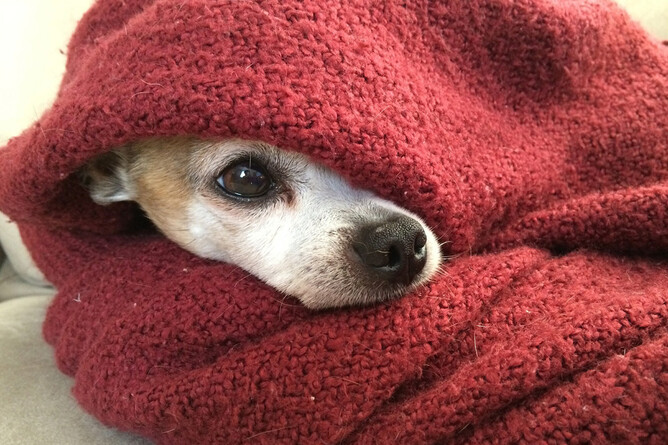Last month in Hong Kong a 17 year old Pomeranian belonging to a woman who had coronavirus herself was considered to be the first known case of human-to-animal transmission of the virus. The dog was quarantined and officials used nasal, oral and blood samples to repeatedly test the pup for the virus while in quarantine.
While blood tests came back negative, meaning no coronavirus-related antibodies were found in the dog’s system, Hong Kong officials believed its owner had passed along “low levels” of the virus. It is known in some asymptomatic or mild cases of human infections with other types of coronavirus that antibodies may not always develop.
The dog has since died. Was it from the virus? Or is it due to an older dog being immune-compromised? We will never know as the owner did not agree to an autopsy being done on her dog. A few weeks later, a second dog has tested positive for coronavirus in Hong Kong, according to the South China Morning Post. Doctor’s diagnosed the dog’s owner with COVID-19. Health officials analysed oral and nasal swabs from the dog, a 2-year-old German Shepherd, and another dog from the same home. The German Shepherd’s results confirmed the presence of the coronavirus, but the dog remained asymptomatic. The other dog’s tests came back clean. The dogs remain in quarantine.
What this highlights is that our pets are susceptible to COVID-19 and infected humans may be able to transmit it to their dogs - and possibly cats. According to the Centers for Disease Control and Prevention, the USA’s leading national public health institute, there is no evidence that companion animals can spread COVID-19. So that is good news but we need to be extra-vigilant around our pets to ensure we keep them healthy and safe.
- Incorporate pets into your preparedness plans to ensure their needs are met.
- Keep your pets in your bubble for the duration of the COVID-19 lockdown and apply the same rules. If you cough or sneeze on your hands and then stroke your cat or dog that could be leaving droplets on their coat which will be picked up by the next person who strokes the pet and then touches their face... that's a way of transferring infection.
- Wash your hands after handling your animals, their food, waste, or supplies.
- Practice good pet hygiene and clean up after pets properly.
- Seek veterinarian advice if you have any concerns about your pet’s health.
- If you are feeling unwell and showing any flu-like symptoms keep interaction between your pet (and other people) to a minimum.
- If you have coronavirus you should restrict contact with your pet(s) just like you would with people. A healthy household member should take care of the pet but if that is not possible, the infected individual should wear a face mask and wash their hands thoroughly before and after feeding, walking or interacting with the pet.
Immunity
If your pet’s immune system is compromised, it may become increasingly vulnerable to illness.
The single best thing you can do to boost immunity is feed an optimum diet with plenty of fresh meat and vegetables. The gut contains about 70% of our immune system so a healthy gut leads to a strong immune system. Consider supplementation to support the immune system – Vitamin C and D, zinc, magnesium and echinacea are all known to assist with colds and chills. Keep your pet fit and at its correct weight - storing excess fat weakens the immune system, as does a lack of exercise. Stress and anxiety can weaken the immune system so make sure your pet is feeling loved and reassured. Remember, they can often pick up on the owner's emotions so try and remain calm around your four legged friend.

